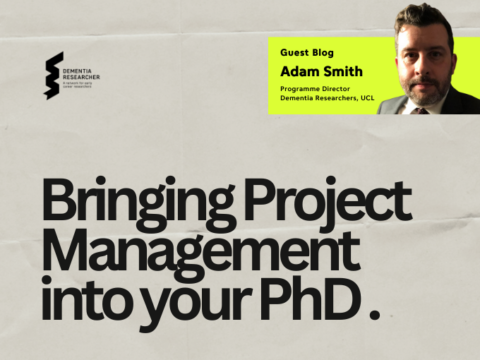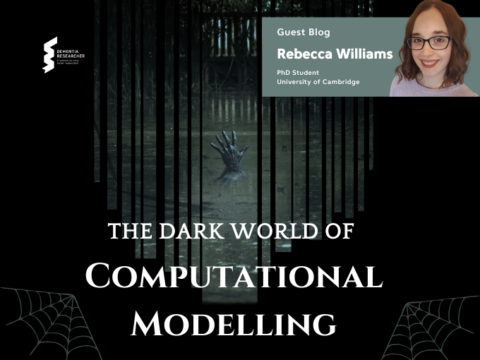Welcome to my third blog! If you’ve read any of my previous posts, you’ll know that I work with Dementia with Lewy Bodies and Alzheimer’s Dementia patients. My job involves setting up polysomnography sleep equipment on patients in their homes. Over the course of three consecutive nights and mornings, I develop a strong rapport with both patients and their caregivers. Most of my visits go smoothly, and I enjoy working with and talking to my participants. However, there’s a distinct and ineffable feeling that arises when dementia adverts play on the television while I’m standing next to a dementia patient.
I often ask caregivers to turn on the television when I arrive for evening visits. This serves multiple purposes. First, it provides a distraction for the patient while I carry out my work. The TV also eliminates awkward silences when I need to concentrate or can’t think of something to say. The background noise from evening programmes helps fill the room and dissipates any awkwardness. Finally, watching TV between 7 pm and 10 pm is a common routine for elderly people, so keeping that routine makes the patient feel less startled when a stranger enters their home to attach wires to their head.
I must admit that I’m not a fan of soaps. I occasionally indulge in mindless reality shows on Netflix, but repetitive soap storylines bore me far more than talking with someone who believes they won’t be affected by dementia at some point in their life. One recent patient asked if I watch the usual soap trifecta—EastEnders, Coronation Street, and Emmerdale. While I don’t choose to watch them, they’re the programmes of choice for many of my patients, so I am inevitably exposed to them. I now have a basic grasp of the main storylines and could even tell you who’s feuding with whom on Albert Square, though I wish I couldn’t!
Is there an age where soaps suddenly become engaging? I’ve just turned 25 and fear my soap-watching time might be looming… Despite my dislike for TV dramas, if it keeps my patients happy and comfortable, I’m willing to endure it. I frequently put aside my own feelings, even after difficult days, to focus on ensuring the patient before me has the best possible experience.
However, there’s one thing I struggle with—dementia adverts. Imagine standing next to someone with a memory-loss condition, someone who can still recall where they met their spouse 20 years ago but can’t remember what they had for breakfast.
A lull in the conversation occurs, and as I turn my back to set up more equipment, I hear the opening lines of a heart-wrenching Alzheimer’s Society advert. In the ad, a son gives a eulogy for his mother, sharing how she could no longer remember his name or see her life partner as anything more than a stranger. The message is clear: “With dementia, you don’t just die once; you die again and again and again.”
In that moment, the room feels heavy. Sadness sweeps over it, pulling both patient and caregiver out of the research bubble and into a painful reality. The first time I heard this advert, I had to fight back tears. I know it’s designed to pull on heartstrings, targeted at a demographic more likely to be affected by dementia. But in that moment, I wondered—what’s the right way to handle something like this? No one gives you a guide on how to navigate such deeply uncomfortable moments. If it’s hard for me, how must it feel for the caregiver, knowing their time is limited and they, too, will one day be forgotten? How does the patient feel, realising the pain they cause their loved ones just by existing? While my discomfort is fleeting, their reality is much more enduring.
Despite how difficult these moments are, dementia adverts do have some positive aspects. They provide easy conversation starters. If a Nando’s advert comes on, I ask, “Have you ever tried their food?” If it’s a cruise advert, I ask, “What’s your favourite place you’ve travelled together?” And when adverts are on, the soaps aren’t, which gives me a break from the EastEnders theme tune. Ad breaks also provide a natural pause, giving patients time to use the bathroom, take a sip of their drink, or ask me questions about the equipment.
These dementia adverts aim to raise awareness of the disease’s harsh realities. The Alzheimer’s Society received backlash for their latest advert, with some saying it was too hard-hitting. But I think that was the point. The script was based on personal experience, reflecting the painful truths of those affected. After all, dementia is the leading cause of death in the UK, and it’s a reality that shouldn’t be sugar-coated.
Dementia is often called “the long goodbye,” and as a researcher, I’m just a passing chapter in the lives of those I meet. The awkwardness I feel during these moments fuels my passion for the work I do. My advice to other dementia researchers is to never talk about a patient as if they’re not in the room. It’s unbearable when a caregiver talks about their partner’s struggles while the patient sits right there. Dementia patients can understand what you’re saying, and each one experiences the disease differently. Just as you wouldn’t want to be spoken to like a child, neither do they. Speak clearly and directly, with respect and decency. Hopefully, you’ll never find out what it’s like to be in their shoes.

Amelia Robson
Author
Amelia Robson is a Research Assistant at Northumbria University supporting delivery of NHS Clinical Trials, particularly in working with Dementia with Lewy bodies and Alzheimer’s disease patients. This work currently involves visiting patient’s homes and applying polysomnography sleep equipment on their face, scalp and body. Amelia graduated in Psychology in 2021 and is passionate about supporting people living with the dementia, and providing help for care givers. Her top tip…. Trust your Gut to stay on the right path.
Follow Amelia Robson on LinkedIn

 Print This Post
Print This Post




